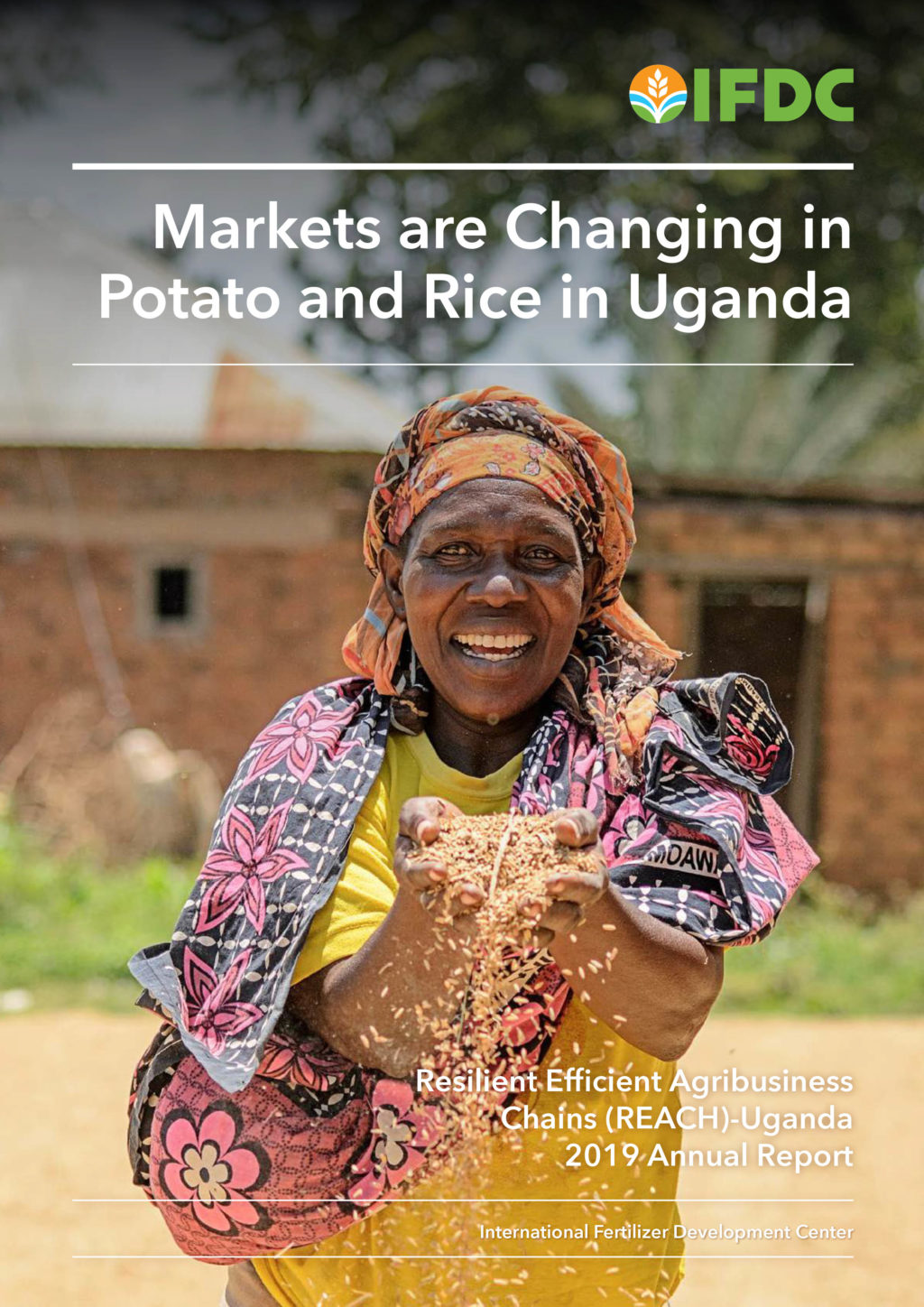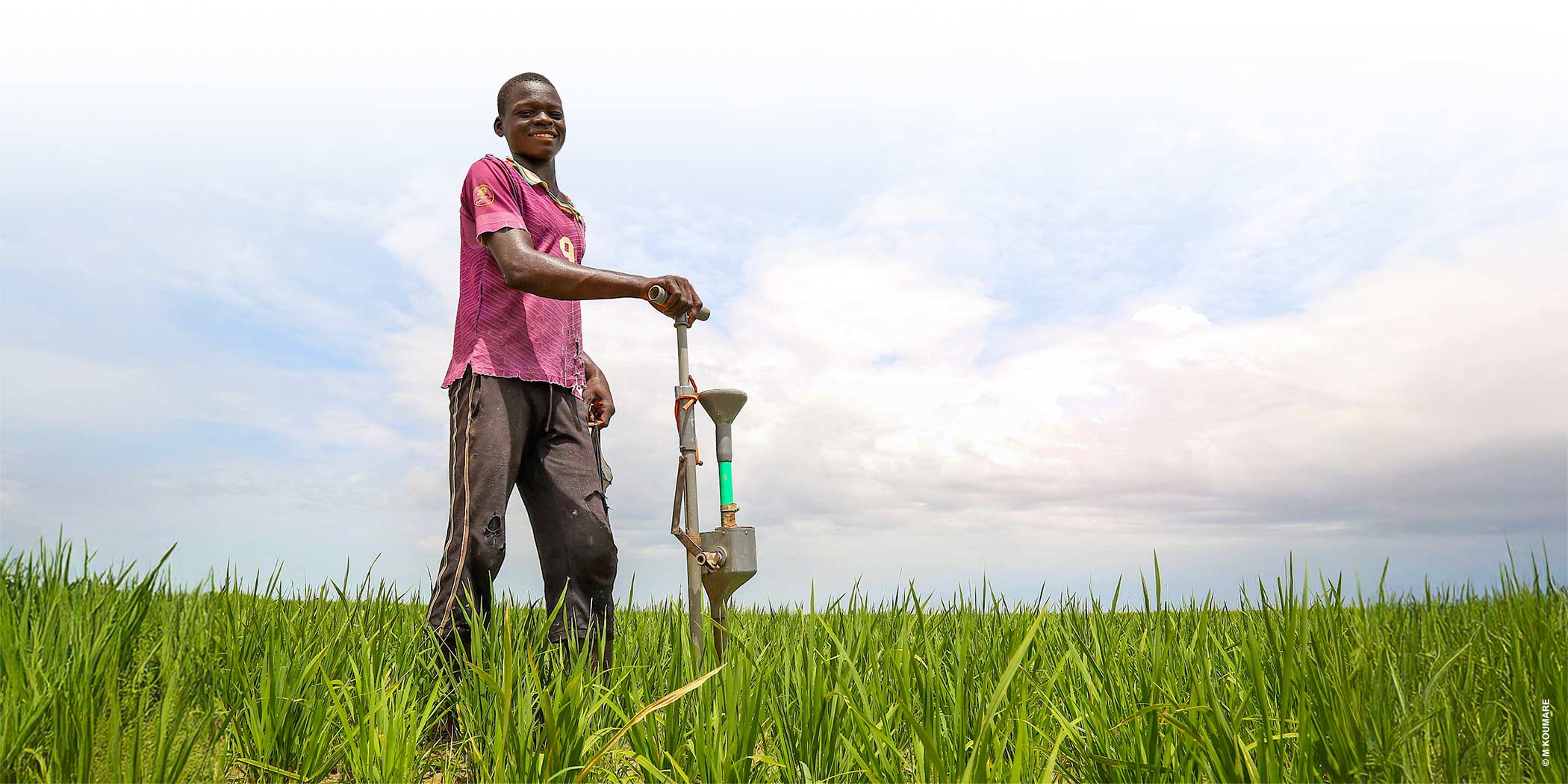
The events of the COVID-19 pandemic should not be allowed to overshadow the progress and success achieved by the REACH-Uganda project during 2019. This report documents successes registered in increasing farm productivity, profitability and improved dietary diversity. Further, the report demonstrates the progress that participating households have made towards increasing their resilience to shocks; critical given that during 2019, farming households experienced two climatic shocks. As we move into 2020, the COVID-19 pandemic has brought a series of new challenges for farming households.
It should be remembered, however, that the REACH-Uganda project is not just about farmers. Using a systems approach the project has in 2019 supported investments with private sector actors in both the potato and rice value chains. Through private sector partners, these have targeted improving farmer access to productive assets, delivery of technical assistance by businesses and boosting farmer access to vibrant profitable markets.
The phrase patient capital is often used to describe long term investments made in businesses, which are often not expected to show immediate returns. In this sense the project’s market systems development approach is a form a patient capital. Readers of this report will see from the project’s Theory of Change some of our greatest impacts will be felt outside of the current lifecycle of the project given the level of resource and time investment that is required from private sector partners – they are and must be the owners of this change process. However, readers will also realize that during 2019 the project has achieved many immediate tangible benefits for the farmers and firms who have actively participated in the project.
Without partners the ability of a project to effect change at any scale is limited. Therefore, we would like to acknowledge the support that we have received from our partners. This represents a wide range of actors from micro and small medium sized enterprises to large multinational companies. Further, it includes institutional stakeholders including the Ministry of Agriculture Animal Industries and Fisheries and the National Agricultural Research Organization especially the staff of Kachwekano Zonal Agricultural Research and Development Institute. Included in our thanks are also the staff and leaders of the ISSD Plus, AVSI SKY and SNV-TIDE projects as well as the team at our implementation partner Cardno – EMG. Acknowledgement must also be given to the team at the Embassy of the Kingdom of Netherlands Kampala, for their continued support and enthusiasm for our work.
The staff of the REACH-Uganda project, who rose to the challenges presented to them in 2019 must also be recognized. Through their commitment and dedication, the project delivered a highly diversified portfolio of partnerships and interventions, capable of influencing change at a systems’ level.
After human life, the next victims of the COVID-19 pandemic have been certainty and predictability. Some certainties remain, the REACH-Uganda project will continue to strive to change lives for the better in a sustainable manner. Enabling households to better withstand shocks, both economic and climatic, whilst at the same time driving change within our target value chains at a systemic level.
To the readers of this report, we hope that it gives you pause for thought and highlights that, while change is difficult and takes time, it is achievable.




